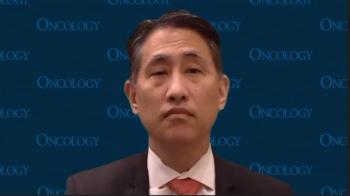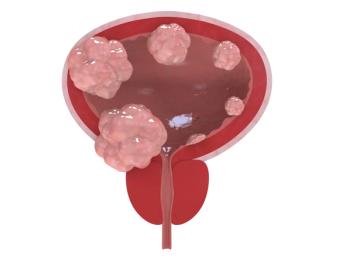
The efficacy of the BOVen regimen in chronic lymphocytic leukemia facilitated its evaluation in patients with mantle cell lymphoma.

Your AI-Trained Oncology Knowledge Connection!


The efficacy of the BOVen regimen in chronic lymphocytic leukemia facilitated its evaluation in patients with mantle cell lymphoma.


Phase 1 data demonstrate enduring responses with ISB 2001 among patients with relapsed/refractory multiple myeloma.

A new type of robotic posterior surgery has been shown to be a treatment option for patients with devastated bladder outlets.

Neoadjuvant trastuzumab deruxtecan/THP showed an enhanced safety profile vs the standard-of-care regimen in patients with early-stage breast cancer.

Investigators can restart the phase 3 ALLELE trial assessing tabelecleucel for patients with EBV-related posttransplant lymphoproliferative disease.

Pathological complete response was higher among patients with ERBB2–positive gastric cancer or GEJ adenocarcinoma treated with atezolizumab vs without.

Support for the decision follows a positive opinion from the Committee for Medicinal Products for Human Use based on the phase 3 ECHO trial results.


Beta emitters such as lutetium Lu 177 rosopatamab may offer built-in PSMA imaging during the treatment of patients with metastatic castration-resistant prostate cancer.

The 1.5T Elekta Unity MR-Linac demonstrated lower rates of erectile dysfunction with neurovascular sparing vs without in patients with intermediate-risk prostate cancer.

The phase 3 GIV-IN PV trial is evaluating the efficacy and safety of givinostat vs hydroxyurea in patients with polycythemia vera.

A systematic review shows that patients with mesothelioma who received HITOCH experienced between 13 to 35 months of survival.

Results from cohort 4 of the phase 2 SunRISe-1 trial showed TAR-200 elicited a 6- and 9-month DFS rate of 85.3% and 81.1%, respectively, in BCG-unresponsive NMIBC.

Clinical trial access alone appears to be insufficient in overcoming the worse survival outcomes observed in Black and Hispanic pediatric populations.


The FDA refuses to file the sBLA for nogapendekin alfa inbakicept plus BCG in BCG-unresponsive NMIBC with papillary disease without carcinoma in situ.

Results from a recent survey showed that 20% of oncologists planned to reduce their hours in the next 12 months, as workplace burnout among them has increased.

Among 20 patients with advanced pancreatic cancer and available circulating tumor mutational burden data, 40% exhibited increased tumor mutational burden.

Ongoing ctDNA analysis may elucidate outcomes associated with divarasib plus migoprotafib for those with KRAS G12C–positive NSCLC.

Therapies such as betibeglogene autotemcel have been “life-changing” for patients with β-thalassemia, according to Nora M. Gibson, MD, MSCE.


No treatment-related deaths were observed among patients with metastatic uveal melanoma treated with melphalan and a hepatic delivery system.

!["[O]ur analysis supports the clinical efficacy and safety of IsaKd as a first-salvage therapy in a specific, and still existing, subset of [patients with multiple myeloma] who relapse during lenalidomide maintenance following autologous stem cell transplantation," according to the study authors.](https://cdn.sanity.io/images/0vv8moc6/cancernetwork/b319d51b3dcc8ae143eae44a72a0aff757b330db-800x533.jpg?w=350&fit=crop&auto=format)
Extramedullary disease was the only factor that correlated with worse progression-free survival per multivariate analysis.

Results from the phase 3 ENVISION trial suggest UGN-102 could be a non-surgical alternative to TURBT for recurrent low-grade intermediate-risk NMIBC.

Preliminary results from a phase 1 trial show an objective response rate of 13.3% with avutometinib, abemaciclib, and fulvestrant in CDK4/6 inhibitor–resistant HR+/HER2– metastatic breast cancer.

No 90-day mortality was observed among patients who were treated with EVP followed by surgery for advanced urothelial cancer.


Utilizing a multidisciplinary breast cancer clinic helped improve time to first appointment and time to first treatment.